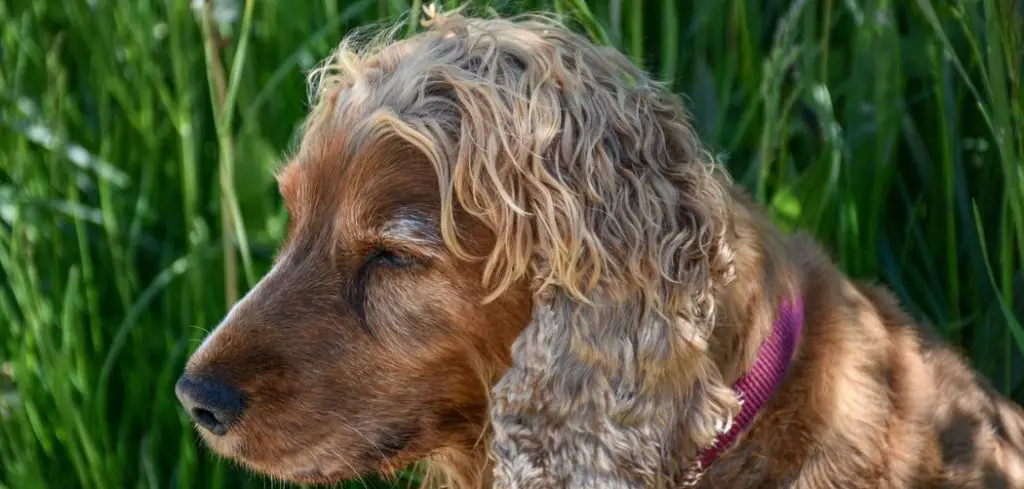A dog hacking cough that occurs immediately after drinking water can be alarming and may indicate underlying health concerns.
While occasional coughing during drinking might be harmless, repeated or intense episodes can point to respiratory, neurological, or structural issues that need attention.
We outline the common reasons why a dog may hack and cough after drinking water, what you can do at home, and when to seek veterinary help.
Dog Hacking Cough After Drinking Water: Why It Happens
A dog hacking cough after drinking water usually happens when the normal swallowing or airway protection mechanisms are disrupted. This can occur due to weakened airway muscles, structural abnormalities, inflammation, infections, or heart-related issues.
Dogs naturally coordinate breathing and swallowing to prevent choking, but problems with this mechanism can trigger coughing.
When water accidentally enters the trachea instead of the esophagus, a protective cough reflex is triggered to clear the airway. Repeated episodes may also indicate underlying health concerns, especially if combined with gagging, retching, or difficulty breathing.
Certain breeds and age groups are more prone to this symptom, and observing when it occurs, how severe it is, and any accompanying signs can help you determine whether veterinary evaluation is necessary.

Dog Hacking Cough After Drinking Water: Common Causes
Tracheal Collapse
Tracheal collapse is a common cause of coughing after drinking, especially in small or toy breeds.
The trachea, or windpipe, becomes weakened and can partially collapse during increased airflow, which sometimes occurs when dogs swallow water quickly.
This leads to a sudden, harsh, honking cough, often accompanied by gagging or retching. Over time, repeated irritation can cause inflammation and discomfort, making early diagnosis and management essential.
Related: Dog hacking cough and spitting up (Here’s why it happens)
Megaesophagus
Megaesophagus is a condition in which the esophagus becomes enlarged and loses its normal motility, making it difficult for food and water to reach the stomach efficiently.
Water can accumulate and spill into the airway, triggering coughing. Dogs with this condition may also regurgitate undigested food, have difficulty swallowing, or show signs of weight loss.
Megaesophagus requires careful monitoring and feeding adjustments to prevent aspiration pneumonia and other complications.
Heart Disease
Certain heart conditions, particularly congestive heart failure, can contribute to coughing after drinking.
Fluid buildup in the lungs and airways makes it easier for water to trigger irritation and a cough.
You may notice additional signs such as coughing during rest or sleep, exercise intolerance, labored breathing, or nighttime coughing.
Early veterinary assessment is crucial, as untreated heart disease can worsen quickly and affect overall health.
Respiratory Infections
Bacterial, viral, or fungal infections of the respiratory tract can inflame the airways and make coughing more likely during routine activities like drinking.
The increased airflow and movement associated with swallowing water can trigger coughing fits.
Signs to watch for include nasal discharge, lethargy, mild fever, or decreased appetite. Prompt veterinary care helps prevent progression to pneumonia or chronic airway inflammation.
Allergies
Dogs sensitive to allergens or irritants in their environment may cough when drinking due to inflamed or reactive airways. Dust, pollen, smoke, or cleaning products can exacerbate coughing episodes.
You may notice coughing only in specific environments or after exposure to certain irritants.
Addressing environmental triggers and minimizing exposure can significantly reduce coughing frequency and severity.
Foreign Objects or Obstructions
Occasionally, coughing after drinking occurs because a small object or debris is lodged in the mouth, throat, or esophagus.
Water can exacerbate discomfort by pushing the object against sensitive tissues, causing gagging and coughing.
Signs of obstruction include drooling, retching, difficulty swallowing, or sudden distress. Foreign body obstructions require immediate veterinary attention to prevent airway blockage or injury.
Read more: Dog Hacking Cough Randomly (Understand sudden cough triggers)
What to Do If Your Dog Has A Hacking Cough After Drinking Water
Observe your dog carefully during drinking to see if the cough is triggered by gulping water quickly or by certain positions.
Offering smaller amounts of water in shallow bowls can help prevent rapid swallowing that triggers coughing. Ensure your dog drinks in a calm environment, free from excitement or stress that can exacerbate airway sensitivity.
Maintaining a clean water source and avoiding exposure to irritants like smoke or dust can reduce airway inflammation.
Keeping your dog hydrated is essential, but it’s better to provide frequent small amounts than large gulps at once. For dogs with known airway or swallowing issues, special bowls or elevated feeders may help improve comfort and reduce coughing.
If the coughing episodes are mild and infrequent, monitoring at home may be sufficient, but always track frequency, severity, and any additional symptoms. Avoid giving human cough medicines or home remedies without veterinary guidance, as these can be harmful to dogs.
When to Call or Visit Your Vet
Seek veterinary attention immediately if your dog has difficulty breathing, persistent coughing after drinking, gagging that does not resolve, blue-tinged gums, or signs of distress. Sudden collapse, lethargy, or repeated retching may indicate a medical emergency.
If the cough becomes chronic or is accompanied by additional signs such as nasal discharge, fever, vomiting, or weight loss, schedule a veterinary visit promptly.
Diagnostic testing such as chest X-rays, heart evaluation, esophageal imaging, or endoscopy may be recommended to identify underlying conditions and develop a treatment plan.
Read more: Dog hacking cough after eating (What it means)
Key Takeaway
A dog hacking cough after drinking water can result from a range of issues, from minor airway irritation to serious conditions such as tracheal collapse, megaesophagus, or heart disease.
Observing your dog’s behavior, managing environmental triggers, and seeking timely veterinary care are essential for their comfort and health.
Even if the cough seems minor, repeated or severe episodes should be addressed promptly to prevent complications and ensure your dog stays healthy and happy.
